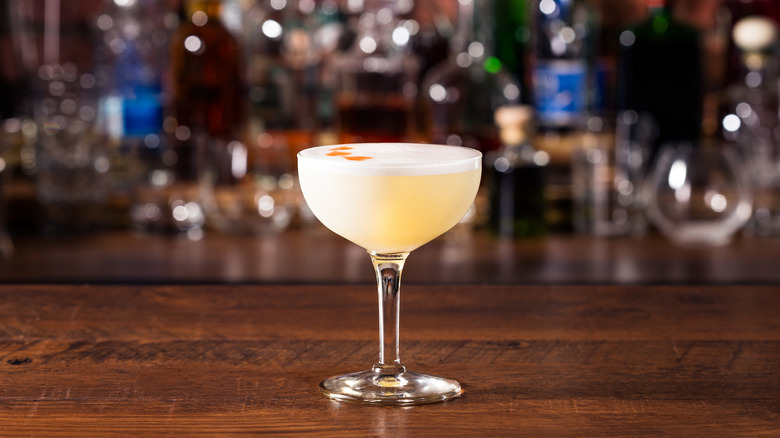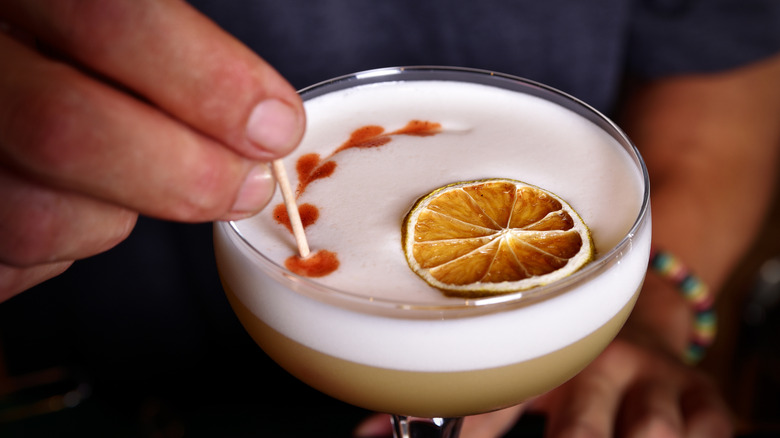This Beloved South American Spirit Sparked A Bitter, Decades-Long Feud
For some reason, people are extremely touchy about food. Certain dishes can cause passionate arguments at the dinner table. Others, spark cultural wars between countries. This is the case with pisco, a grape-based brandy that's caused a centuries-old riff between Peru and Chile. Each country discredits the other's claims to the spirit. Peru argues that the distilled drink was first produced after Spanish colonization and was named after the port of Pisco, from where it was exported around the world. Chile says that the name comes from the town of Pisco Elqui, pointing to the fact that the first commercial piscos were Chilean.
Neither country had a definitive claim — until now. In 2024, UNESCO studied and released numerous historical records that detailed every step of the production and export of pisco during the 16th and 17th centuries. These manuscripts clearly set the origins of the drink to modern day Peru and the port that we now know gave the spirit its name. Although Chile refused to accept a similar verdict from the European Commission, these manuscripts will be hard to dispute. The two nations will probably still continue to argue about who invented pisco sour, which they both consider their national drink.
The difference between Peruvian and Chilean pisco
Despite all the fighting, Peruvian and Chilean pisco aren't even that similar. Peru has stricter standards, only allowing the spirit to be made from eight specific grapes and distilled in a copper pot. Aging it in barrels is strictly prohibited. Chile takes a freer approach to production. Many more types of grapes can be used, and aging receives a green light.
The same can be said for pisco sour. Peruvians usually make theirs with egg whites and bitters while Chileans do away with these ingredients and replace them with lemon juice. Which is better? We're not looking to start World War III so we'll refrain from answering. But we will say that either version is an excellent choice for a bougie homemade cocktail. And in the spirit of keeping the peace, we'll also add that the origin of food doesn't really matter too much. France is well-known for its wine despite being neither the country that invented it nor its largest producer. We can now be certain that pisco comes from Peru, but this doesn't make the spirit any less important to Chilean history or culture. In the end, both nations can still claim the drink as theirs.

